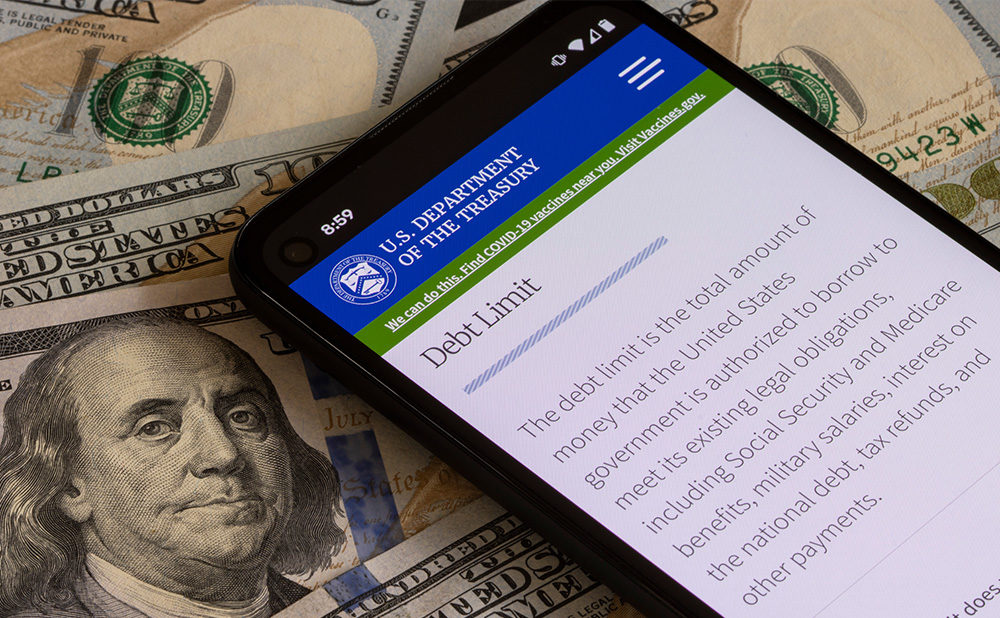
Recently we covered the basics of the debt ceiling and how a failure to raise the debt ceiling might affect consumers. This article will take a deeper dive into how a potential government default could affect the mortgage and real estate industries.
The US Government has a self-imposed debt limit of 28.4 trillion dollars, established on August 1st, 2021. Recently US Treasury Secretary, Janet Yellen, estimated that amount would be reached by June 1st, 2023.
If the debt limit is not raised, a U.S. default will happen wherein the government will be unable to meet its financial obligations. A default would have significant repercussions on the mortgage industry and the overall economy. Specifically, things like mortgage rates and mortgage approvals will become much more difficult, and liquidity could dry up for the secondary mortgage market.
Impact on Interest Rates
A U.S. default could downgrade the country’s credit rating, which means an increase in risk. With the increased risk, there would be increased interest rates. Since debt ceiling talks came into focus this month, the yield on the US 10 Year Treasury, which is the mortgage benchmark, has gone up from 3.31% to 3.74%. The risk of a potential default by the US Government drove this increase. As the yield on the 10 Year goes up, so do mortgage rates.
Getting Mortgages Approved
In the United States, 90% of the mortgage market carries some type of implicit or explicit government guarantee for purchasing investors. FHA, VA, and USDA are parts of the U.S. Government, with Fannie Mae and Freddie Mac being Government Sponsored Entities (GSE). The government-sponsored entities have been under government receivership since the mortgage meltdown years ago, which complicates these issues.
So, the government entities like FHA, USDA, and VA would most likely be subject to repercussions of the default, while Fannie Mae and Freddie Mac have the best chance of continuing during a government default.
Liquidity on the Secondary Mortgage Market
Ever wonder where all the money for mortgages comes from? It comes from what is called Mortgage Backed Securities (MBS). Mortgage loans are purchased from banks, mortgage lenders like Homestead Financial Mortgage, and other originators and then pooled together – and the entity that purchased those loans issues securities that represent claims on the principal and interest payments made by borrowers. The federal government guarantees the performance of these securities in the event of a borrower default. Without a guarantee of payment, the liquidity would dry up. While this would require a prolonged government shutdown, our industry’s reliance on the government can’t be overstated.
The likelihood of a government shutdown is low, and a prolonged one is remote at best. But, for anyone in our industry, a government default should be a topic on which we focus for the next couple of weeks and its potential impact on the market.
